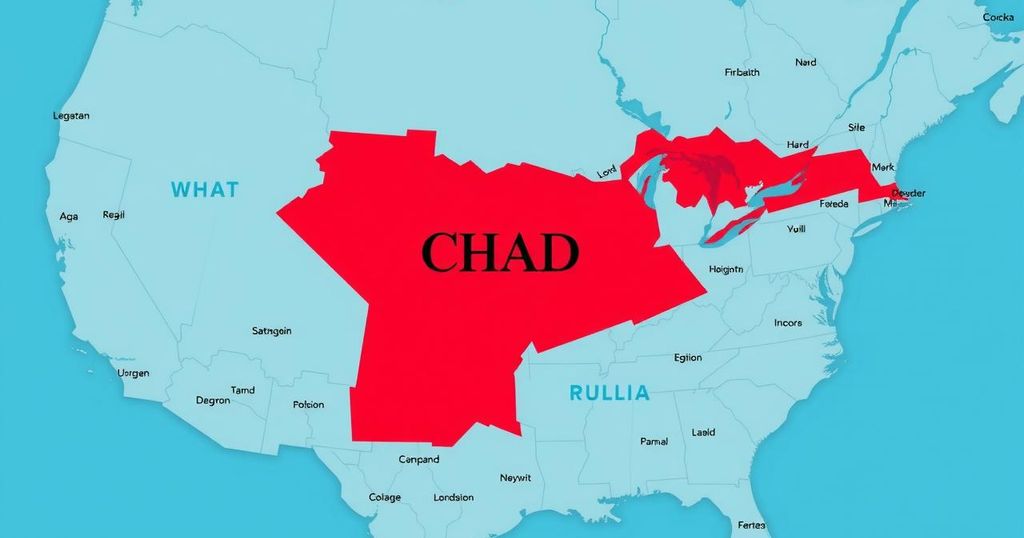Implications of the Syrian Rebellion on Middle Eastern Power Dynamics
The Syrian rebellion, led by an Islamist group, poses a significant threat to President Bashar al-Assad’s regime as rebels capture key cities. This development forces global stakeholders to reevaluate their positions, balancing interests in countering Iranian influence against avoiding a radical Islamist government taking power. Arab states, previously aligned with the opposition, now consider supporting Assad as they aim for stability. The ongoing conflict creates intricate challenges for major players, including Iran, Israel, Russia, and Turkey, as they navigate the shifting dynamics of power.
The Syrian rebellion, spearheaded by an Islamist faction, poses significant challenges to President Bashar al-Assad’s regime as it gains momentum in northern Syria, capturing strategic cities like Aleppo and Hama. As rebel forces aim to push toward Homs, their actions compel global powers to reconsider their stances on the conflict. Although there appears to be an opportunity for the Assad regime to face a serious threat, key stakeholders, including Western and Arab nations, find themselves torn between aspirations to diminish Iranian influence and concerns regarding the rise of a radical Islamist government in Syria.
Arab states, having previously supported the opposition, are now reassessing their strategies as Assad’s fortification, aided by Russia and Iran, reshapes the landscape. The Gulf Cooperation Council (GCC) has pivoted towards supporting the Assad regime, indicating a shift in regional dynamics. “In 2011, a very large number of countries… wanted to get rid of him… but the Saudis, Emiratis and others in the region see this now as a challenging and destabilizing situation for them if Assad falls at this point,” explained Trita Parsi from the Quincy Institute.
Iran’s stake in Syria is intricate, having established a foothold through proxy groups. As the rebellion gains strength, Iran faces a dilemma: escalating its military backing for Assad threatens its diplomatic efforts with the West. Parsi opined, “If Iran loses too much of their position in the region, will they be too weak to negotiate?” This precarious balancing act could lead to significant repercussions in Iran’s broader regional influence and investment.
Furthermore, Israel’s methodology towards the changing dynamics in Syria remains cautious. While Assad has not posed a direct threat, the rise of groups like Hayat Tahrir Al Sham complicates Israel’s security framework. Avi Melamed, a former Israeli intelligence official, articulated the uncertainty: “Israel is in between Iran, its proxies and Syria’s Islamic rebels.”
Russia, a pivotal ally of Assad, has its interests entangled in the conflict. The Kremlin’s historical support has greatly influenced the course of the war, yet with Ukraine demanding resources, the rapid rebel advancements now threaten Russia’s investment in the Assad regime. “Russia put far too much capital in Assad and the loss of Syria would be an even bigger loss as its broader status as a great power and its ability to maneuver in the Middle East,” noted Nicole Grajewski, emphasizing the precariousness of the situation.
Turkey serves as the main supporter of the Syrian opposition, although its strategy is evolving to facilitate negotiations with Assad. The geopolitical shifts have prompted Turkey to seek a leverage position in negotiations aimed at addressing both Syrian territorial integrity and domestic challenges posed by refugees. According to Galip Dalay, “Now it’s clear that Turks want to engage in negotiation but showing Assad that he is entering the negotiation from a point of weakness.” The impending discussions are expected to compel significant concessions from Assad rather than superficial commitments.
The Syrian civil war, now ongoing for over a decade, has been marked by complex geopolitical influences and shifts in alliances. Initially, a range of Arab states supported the opposition to Assad, primarily motivated by a desire to counter Iranian influence in the region. However, as the dynamics changed—from Russia’s military intervention to the evolving positions of regional powers—an intricate web of interests has emerged. The current landscape demonstrates a tendency among regional actors to realign themselves in response to the threats posed by both Iranian proxy forces and Islamist groups. Furthermore, the engagement of global stakeholders like the United States, Russia, and Turkey reflects attempts to maintain or adjust their positions within a shifting geopolitical framework.
The unfolding events of the Syrian rebellion not only challenge Assad’s authority but also drastically reshape the geopolitical landscape of the Middle East. The realignment of Arab states toward the Assad regime underscores a significant shift in regional priorities, focused on stability rather than ideological victories. For stakeholders such as Iran and Russia, the repercussions of these advancements could jeopardize their influence in Syria, while Israel and Turkey continue to navigate complex relationships with multiple factions on the ground. As the situation evolves, the necessity for strategic adjustments by all parties involved underscores the precarious balance of power in the region.
Original Source: www.cnn.com








Post Comment